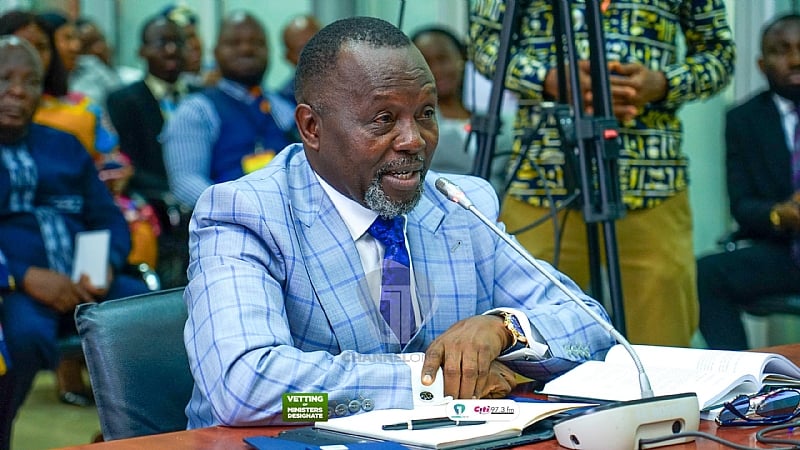The nomination of Dr. Dominic Akuritinga Ayine as Attorney-General and Minister for Justice has sparked a heated debate in Ghana’s Parliament, primarily centered around his proposal to reintroduce public tribunals into the judicial system. The Minority vehemently opposes this idea, characterizing it as a dangerous regression that could undermine the progress made in strengthening the country’s judicial infrastructure and potentially lead to a resurgence of the injustices associated with past tribunal systems. They argue that the existing court system, augmented by recent expansions and the Chief Justice’s authority to establish specialized courts, is fully capable of handling the nation’s legal needs. The Minority’s concerns stem from the historical context of public tribunals in Ghana, which they associate with periods of authoritarianism, political interference, and human rights abuses.
The core of the Minority’s argument rests on the perceived redundancy of public tribunals, given the substantial investments already made in expanding court infrastructure. They point to the construction of 110 new courts in the past eight years, facilitated by the District Assembly Common Fund, as evidence of the government’s commitment to enhancing access to justice. They contend that instead of creating a parallel system of tribunals, resources should be directed towards further strengthening and streamlining the existing judicial framework. This includes empowering the Chief Justice to establish specialized courts tailored to specific legal needs, such as specialized criminal high courts, which could address the types of cases Dr. Ayine proposes to assign to the tribunals.
Dr. Ayine, in his appearance before Parliament’s Appointments Committee, justified the reintroduction of public tribunals as a means to enhance access to justice, particularly in local communities and districts. He argued that these tribunals would provide a more efficient and accessible platform for resolving local disputes and criminal matters, complementing the existing regional courts. He envisioned these tribunals as a localized and streamlined alternative to the formal court system, thereby reducing the burden on higher courts and facilitating faster resolution of minor cases.
However, the Minority rejects this rationale, viewing it as a superficial solution that overlooks the potential for abuse and politicization inherent in a tribunal system operating outside the established judicial hierarchy. They argue that the historical record of public tribunals in Ghana is marred by instances of arbitrary justice, political persecution, and disregard for due process. The Minority fears that resurrecting such a system, even with purported safeguards, would be a step backwards for the rule of law and could jeopardize the hard-won independence and integrity of the judiciary.
The Minority’s stance reflects a deep-seated distrust of the proposed tribunals, rooted in the historical association with repressive regimes. They recall a period where public tribunals were used to silence dissent, suppress political opposition, and mete out arbitrary punishments, often without adherence to due process or the right to a fair trial. They argue that the very nature of tribunals, operating outside the established judicial framework and with potentially less stringent oversight, creates an environment conducive to abuse and manipulation. This historical baggage heavily influences their perception of Dr. Ayine’s proposal, leading them to view it as a potentially dangerous regression towards authoritarian practices.
The debate over the reintroduction of public tribunals highlights a fundamental disagreement on the best approach to enhancing access to justice in Ghana. While Dr. Ayine emphasizes the need for localized and streamlined dispute resolution mechanisms, the Minority prioritizes safeguarding the independence and integrity of the judiciary. They advocate for strengthening and expanding the existing court system rather than creating a parallel system that they believe carries significant risks of abuse and politicization. This disagreement reflects a broader tension between efficiency and due process, with the Minority emphasizing the importance of upholding fundamental legal rights and safeguards, even if it means a potentially slower or more complex judicial process.














